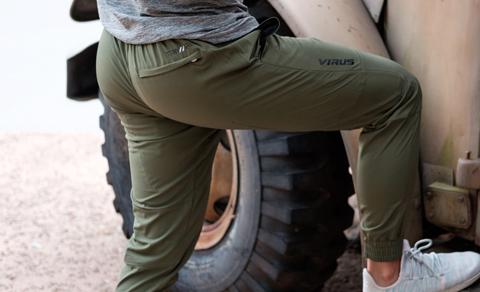Do you even lift? Those of you that do will appreciate that there is science behind what constitutes a good lift, and what could potentially end up as a ‘gym fail’.
We sat down recently to talk all things weightlifting with weightlifting coach, Lester Ho. Lester, is renowned for bringing good science to many aspiring lifters and competition level athletes through his website and social media platform, The Training Geek. And, with his team of athletes 8/8 medal tally at the recent Victorian Masters Championships, he surely knows what he is talking about.
Lester got into lifting during his Exercise Science Degree, when he was not only taught lifts as part of his studies but also experimented on his own as a student, trying out CrossFit in his garage and uni gym. While utilising lifts as part of CrossFit, he was given a formal introduction to weight lifting by his lecturer who recommended he try out the sport at Phoenix Weightlifting club in Oakleigh, Victoria.
Under the expert knowledge of one of the club’s more experienced coaches, Robert Kabbas, he trained, competed and learned more about the sport. He also incorporated it back into his studies, researching novice lifters, and examining their technique. Upon beginning coaching, Lester was able to apply these leanings, providing his clients with evidence-based training methodologies, incorporating both old and new concepts. He refers to this unique opportunity, putting his theory into practice, as being one of the highlights of his career thus far.
One of the key things he observed was that bio-mechanically, everyone is suited to lift. While traditionally weightlifters had been selected based on the anatomy of their build for the standard lifts, he found that if anyone lifting had their technique catered to their individual differences, for example the lengths of their levers (limbs) and torso, then most people could be taught to lift successfully.
Lester explains that if you have an understanding of the movement, from start to finish, then you will lift better and also potentially avoid injury. If your set-up (starting point) on a lift is flawed, then there is greater room for error and a heightened risk of injury. Breathing, foot placement, shoulder positioning, individual’s physical limitations, are just a few of the factors that can determine lifting success.
In terms of lift-related injuries, Lester points out that often these occur in relation to what the individual does outside of training, so it is important to consider lifestyle factors when establishing a cause. Lifting without first mobilising, or priming the body, especially after having spent all day seated at a desk or in a car can easily cause common restriction or mobility issues. Not spending enough time focusing on recovery is another common cause. Eating, sleeping, and breathing well, managing stress and investing in quality training and rehab professionals are all important when it comes to preventing injury.
Through the conversation, he agrees that technology can be used to further enhance recovery. To reduce inflammation caused by training, electrical stimulation, ice baths and compression garments can be quite useful. Lester personally uses Virus compression garments for recovery, as he finds compression garments to be a lot more accessible, compact and affordable than other types of technology designed for recovery. He also swears by them for air travel, having experienced a reduction of inflammation, and hip stiffness after wearing them during international flights.
In regard to technology, what does Lester predict for the future of weightlifting? The essence of the sport is to lift as much weight as possible, however recent doping scandals have tarnished the sport, so he sees a shift away from the use of drugs, toward a more methodical approach to training and recovery. A lifter can do well by respecting the science and working with ALL of the different variables to create a formula for success.
Lester has also noticed a trend toward people lifting for longer, especially with many individuals graduating to the Masters scene, bringing with them a mature mindset, a wealth of knowledge and experience having already learned their capabilities and limitations.
Having come full circle from gym junkie, to weightlifter to coaching athletes of all levels, all before the age of 35, it will be fascinating to see where Lester’s appreciation for science of lifting takes him next.
Want to lift with Lester? On Saturday April 21st, 2018, Lester is holding a Learn to Lift Day event at his TG Strength Facility.
Visit The Training Geek to find out more about Lester, his facility and keep up to date on other upcoming programs and events, where you can learn about lifting. Or follow him on Instagram, and Facebook for some top quality lift-related content.



